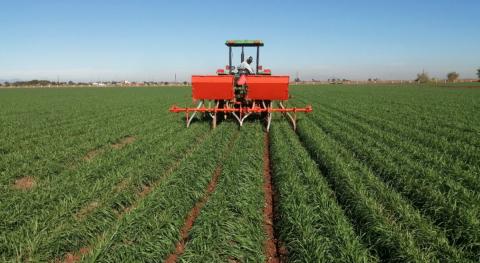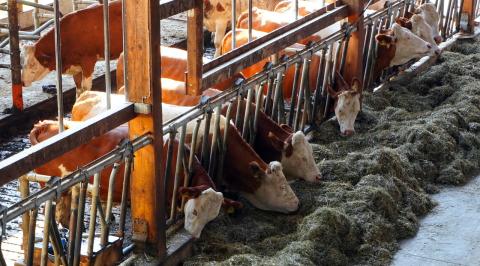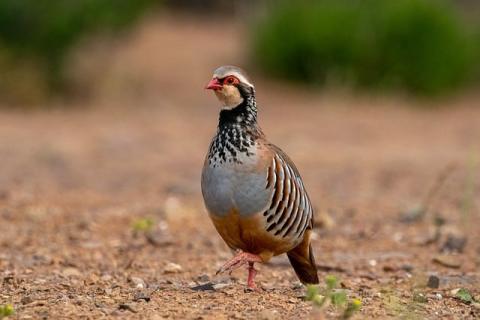Grass-fed beef emits no less carbon than industrial beef
Grass-fed beef is not less carbon intensive than industrial beef, even after correcting for soil sequestration enhancement by rangeland grazing, according to a study published today in the journal PNAS that analysed emissions and livestock data from the United States.

Pablo Manzano - pastos EN
Pablo Manzano
Ikerbasque Research Fellow at the Basque Centre for Climate Change
The note reflects the study accurately and it is robustly done following the most usual approaches in current science. It provides results in line with what is already known from livestock farming, where extensive livestock production has higher rates of land use and methane emission per kilogram of feed produced, and the capacity of grasslands to fix carbon, although high, has a limit. However, the findings offer particularly problematic interpretations with grazing livestock.
The study and its note ignore the fact that a significant part of the emissions modelled for grazing livestock are unavoidable as they belong to the natural background of ecosystems and should therefore not be considered anthropogenic. Expressly, scenario 1 of the paper recommends dedicating pastures now used for cattle grazing to rewilding as a potent climate mitigation measure. The authors fall into an accounting trap because, at the moment and for methodological convenience, the UNFCCC considers all emissions on managed land as anthropogenic and inventoriable, and all emissions on unmanaged land as natural. Scenario 1 of these authors therefore ignores that abandoning and rewilding 1.2 million km² of grasslands, or 15% of the contiguous US states, would create conditions suitable for, for example, the spontaneous restoration of large herds of bison, which are already known to have been very potent emitters of methane prior to European settlement. That these bison emissions fall into the UNFCCC's ‘natural’ category and that cattle emissions are categorised as ‘anthropogenic’ for mere accounting convenience does not change the fact that they are interchangeable and that the climate mitigation assumed by the discussion in this article is impossible and unrealistic.
The consideration of pasture-based livestock farming as highly damaging to the climate should therefore not be taken seriously by readers. Finally, the biodiversity benefits of rewilding, when compared to properly managed grasslands with livestock, may be limited only to the reintroduced wild species, and not to the species already present in the ecosystem.
Eshel et al.
- Research article
- Peer reviewed
- Animals



